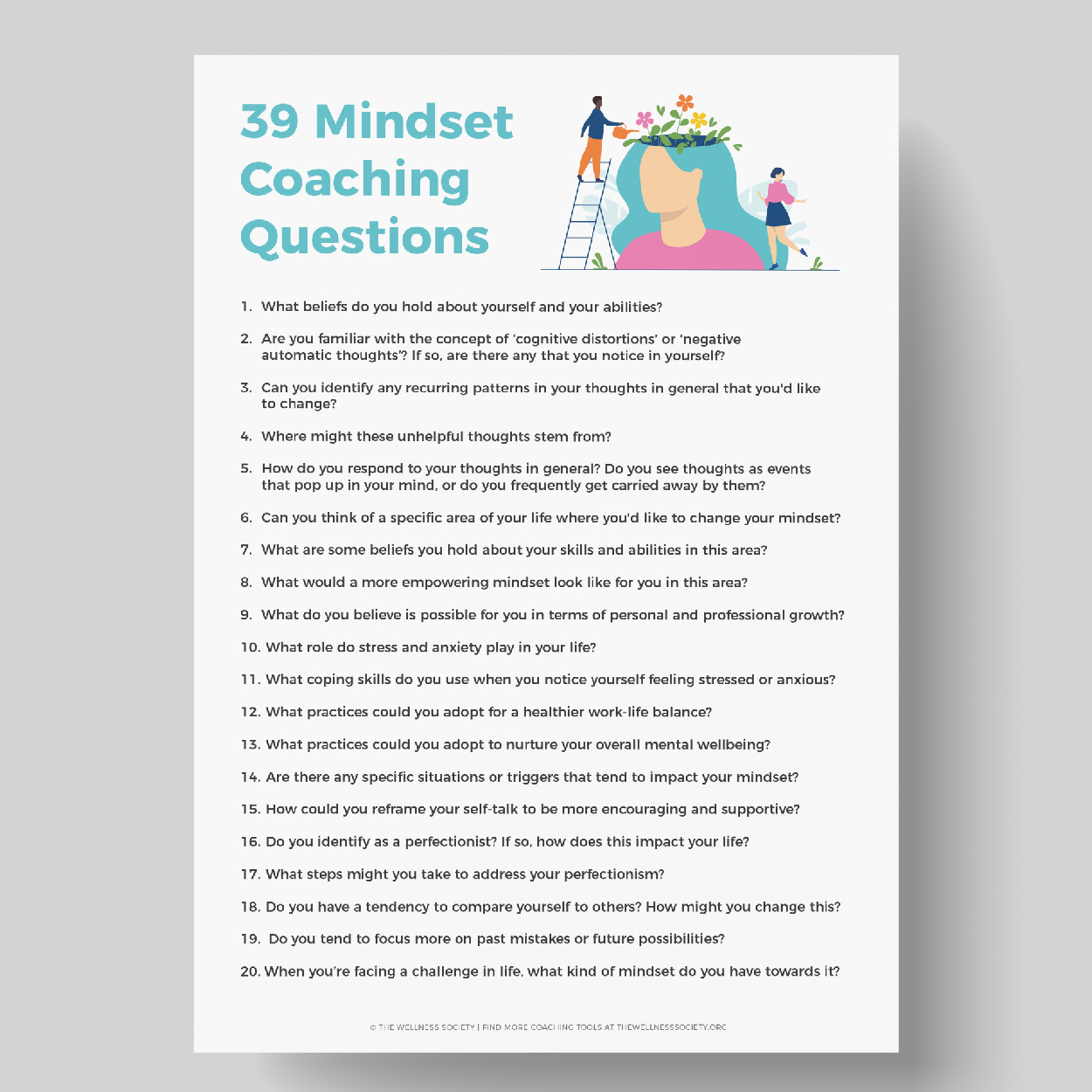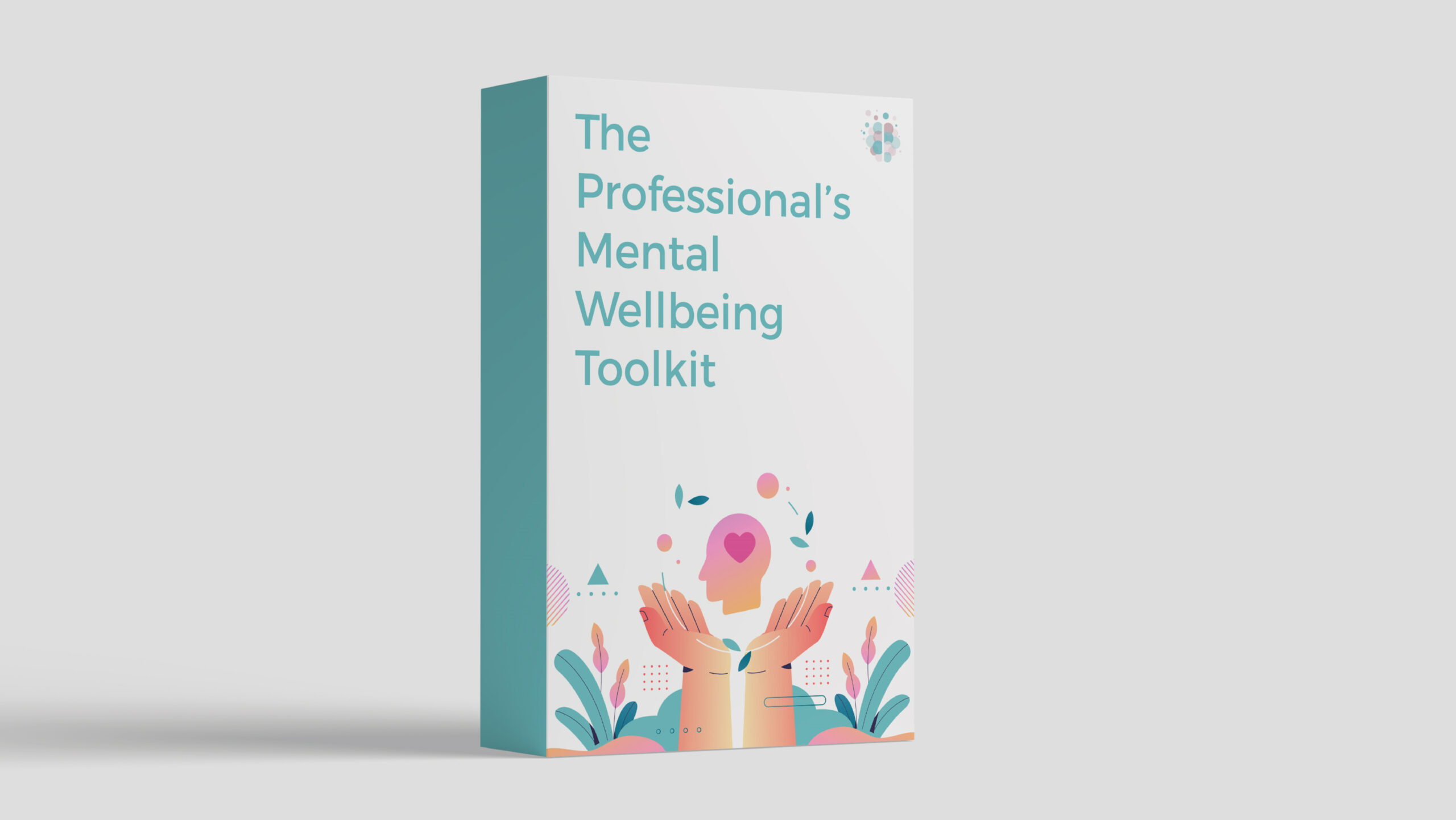Our mindset refers to our sets of beliefs about ourselves and the world. We can think of them as our core beliefs.
These beliefs shape our reality – they influence how we interpret the world, what we pay attention to, and ultimately, how we feel. Developing awareness of our mindsets is a powerful tool when it comes to enhancing our mental wellbeing.
And this is where a mindset coach comes in. A mindset coach supports clients to develop awareness of their core beliefs. In addition, they support clients to transform their mindsets to aid their personal growth and mental wellbeing.
It can be an incredibly rewarding role!
So, what does this involve exactly? What does a mindset coach do?
- They assess their client's current mindset through coaching questions and self-assessment exercises.
- They help people identify unhelpful thought patterns.
- They guide clients to challenge and reframe unhelpful beliefs, for example, with the use of cognitive behavioural therapy tools.
- They help facilitate a shift from a fixed mindset to a growth mindset.
- They help clients set goals related to mindset and personal growth.
- They teach specific skills and techniques related to mental wellbeing, mindfulness, stress management, etc.
- They help clients stay accountable for their goals and actions.
- They provide resources to help clients continue their mindset development independently.
What Makes a Good Mindset Coach?
Here are five skills and qualities that enable mindset coaches to thrive:
- They’re excellent active listeners. They don’t listen to speak – they listen to understand. They have a mindset of curiosity which enables them to listen deeply and ask powerful coaching questions.
- They’re non-judgmental. They create a space where clients feel safe to express their thoughts, fears, and vulnerabilities without fear of criticism or judgement.
- They’re motivational. A good mindset coach is growth-minded and skilled at inspiring clients, especially during challenging times when people may doubt their progress.
- They’re resourceful. They provide clients with resources to support their development outside of coaching sessions.
- They’re passionate and altruistic. Their genuine passion for helping others grow is a key driving force behind their coaching practice.
39 Powerful Mindset Coaching Questions
- What beliefs do you hold about yourself and your abilities?
- Are you familiar with the concept of ‘cognitive distortions’ or ‘negative automatic thoughts’? If so, are there any that you notice in yourself?
- Can you identify any recurring patterns in your thoughts in general that you'd like to change?
- Where might these unhelpful thoughts stem from?
- How do you respond to your thoughts in general? Do you see thoughts as events that pop up in your mind, or do you frequently get carried away by them?
- Can you think of a specific area of your life where you'd like to change your mindset?
- What are some beliefs you hold about your skills and abilities in this area?
- What would a more empowering mindset look like for you in this area?
- What do you believe is possible for you in terms of personal and professional growth?
- What role do stress and anxiety play in your life?
- What coping skills do you use when you notice yourself feeling stressed or anxious?
- What practices could you adopt for a healthier work-life balance?
- What practices could you adopt to nurture your overall mental wellbeing?
- Are there any specific situations or triggers that tend to impact your mindset and/or mental wellbeing?
- How could you reframe your self-talk to be more encouraging and supportive?
- Do you identify as a perfectionist? If so, how does this impact your life?
- What steps might you take to address your perfectionism?
- Do you have a tendency to compare yourself to others? How might you change this?
- Do you tend to focus more on past mistakes or future possibilities?
- When you’re facing a challenge in life, what kind of mindset do you have towards it?
- What are your beliefs around vulnerability?
- How do you typically react to setbacks or failures?
- What emotions or thoughts arise when you encounter setbacks or failures?
- Let's explore the idea that our abilities and qualities can actually grow and develop over time. What are your initial thoughts on this?
- Can you think of any times where you felt limited by the belief that your abilities are fixed?
- What are some past achievements that show your ability to overcome challenges?
- Can you think of a time when you faced a setback but eventually learned something valuable from it?
- Can you think of examples where your effort and perseverance led to significant growth or achievement?
- Do you have any role models whose mindset you admire? What can you learn from them?
- What steps can you take to stretch beyond your comfort zone?
- Do you have any habits that hold you back from adopting a more helpful mindset?
- Do you adopt any habits that help you nurture positive emotions?
- What goals do you have, and how could a better mindset help you achieve them?
- What strategies can you use to stay motivated and resilient when pursuing your goals?
- What are some small, actionable steps you can take today to start shifting your mindset in a positive direction?
- What are your strengths? How can you leverage them to achieve your personal goals?
- What steps can you take to practice self-compassion during difficult times?
- What are your core values?
- How do you set and work toward your goals? Are they aligned with your values and long-term vision?
Summary
A mindset coach helps people to become more self-aware, change unhelpful thought patterns, and develop a mindset that fosters mental wellbeing and personal growth.
Whether you're an aspiring or accomplished coach, we hope this list of mindset coaching questions helps enhance your coaching skills.
Want more mindset coaching tools? Be sure to check out The Professional’s Mental Wellbeing Toolkit, “it really has everything you need all in one place.”



